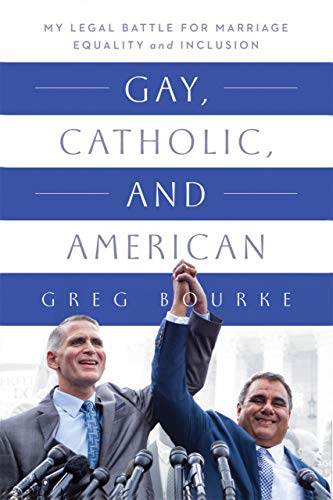This essay first appeared in our weekly Scripture reflection newsletter on November 1, 2025.
Ex 17: 8-13; 2 Tim 3:14-4:2; Lk 18:1-8
You can find the readings for the The Commemoration of All the Faithful Departed (All Souls) here.
Here are two beliefs that trouble some people but have never troubled me: belief in the afterlife and belief in purgatory.
These beliefs are at the heart of the feast that we celebrate this Sunday: The Commemoration of All the Faithful Departed, or All Souls Day. Yesterday, we celebrated All Saints Day, remembering all those who now enjoy eternal life with God in heaven. On All Souls Day, we pray for all those who have died, including those who may not have reached their heavenly reward yet—in other words, those in purgatory.
When I was a Jesuit novice, a fellow novice recounted a story from his childhood. He once happily told his elementary-school teacher, who was a Catholic sister, that one of his aunts had just given birth to my friend’s new cousin. “Well, you tell your aunt to baptize the baby right away,” Sister said. “Because if he dies before he gets baptized, he will go to limbo and spin like a top for all eternity!” I’ve never gotten that bizarre image out of my head.
On All Souls Day, we pray for all those who have died, including those who may not have reached their heavenly reward yet—in other words, those in purgatory.
The concept of limbo was downgraded from a doctrine to a hypothesis or theory by the International Theological Commission in 2007. (It was probably helpful that this was done during the papacy of Pope Benedict XVI, since he had more than enough theological bona fides to satisfy everyone in the church.) But our belief in purgatory, the time of purification of the soul before one meets God face to face, remains.
As I said, this belief has never proved a problem for me. I’ve always thought that none of us would be truly ready to meet God as soon as we die. Now, I know that God is outside of time and space, so speaking about “as soon as” is a bit of a misnomer. Still, at the end of our lives all of us, even if we have gone through great suffering, times of reflection and have even confessed our sins, are probably still in need of a kind of transition period where we review our lives and come to recognize our need for God’s mercy. At least that’s how I conceive of it. So purgatory, a time of purification or purgation, has always made sense to me. On All Souls Day, we remember all those who have gone before us who still need our prayers as they make their way through that experience.
Even more important, All Souls Day reminds us of the promise of everlasting life that Jesus offers all believers, as expressed in the Gospel reading when he says, “For this is the will of my Father, that everyone who sees the Son and believes in him may have eternal life, and I shall raise him on the last day.” This message comes in the sixth chapter of John’s Gospel, in which Jesus reveals himself to the disciples as the “Bread of Life.” Jesus tells his followers that, unlike Moses who gave manna to his followers, who would die, Jesus is the eternal bread, which his followers will eat and live.
God has a place prepared for each of us, a place where we will dwell with God until the end of time.
Eternal life can be a hard thing for even some devout Christians to believe. But we have to remember that Jesus does three things to help us accept this promise. First, he tells his disciples about eternal life, as he does here in John 6. Second, he shows his disciples that he has power over death, by raising his friend Lazarus from the dead, in John 11. Finally, Jesus definitively reveals the pattern of eternal life, the “first fruits,” as St. Paul says, at the Resurrection.
But if that doesn’t “convince” you, perhaps you can look at it this way: God is love. God loved you into being and entered into a loving relationship with you, at the moment of your conception. Why, then, would a loving God let something like death end that loving relationship? No, God has a place prepared for each of us, a place where we will dwell with God until the end of time.
Hope in this. Trust in this. Most of all, believe in this.




